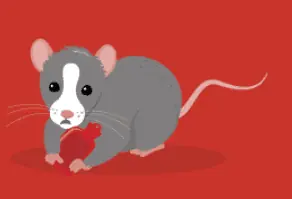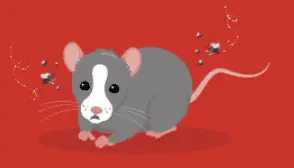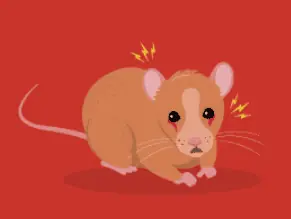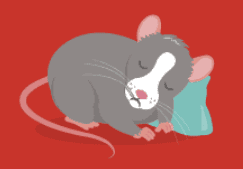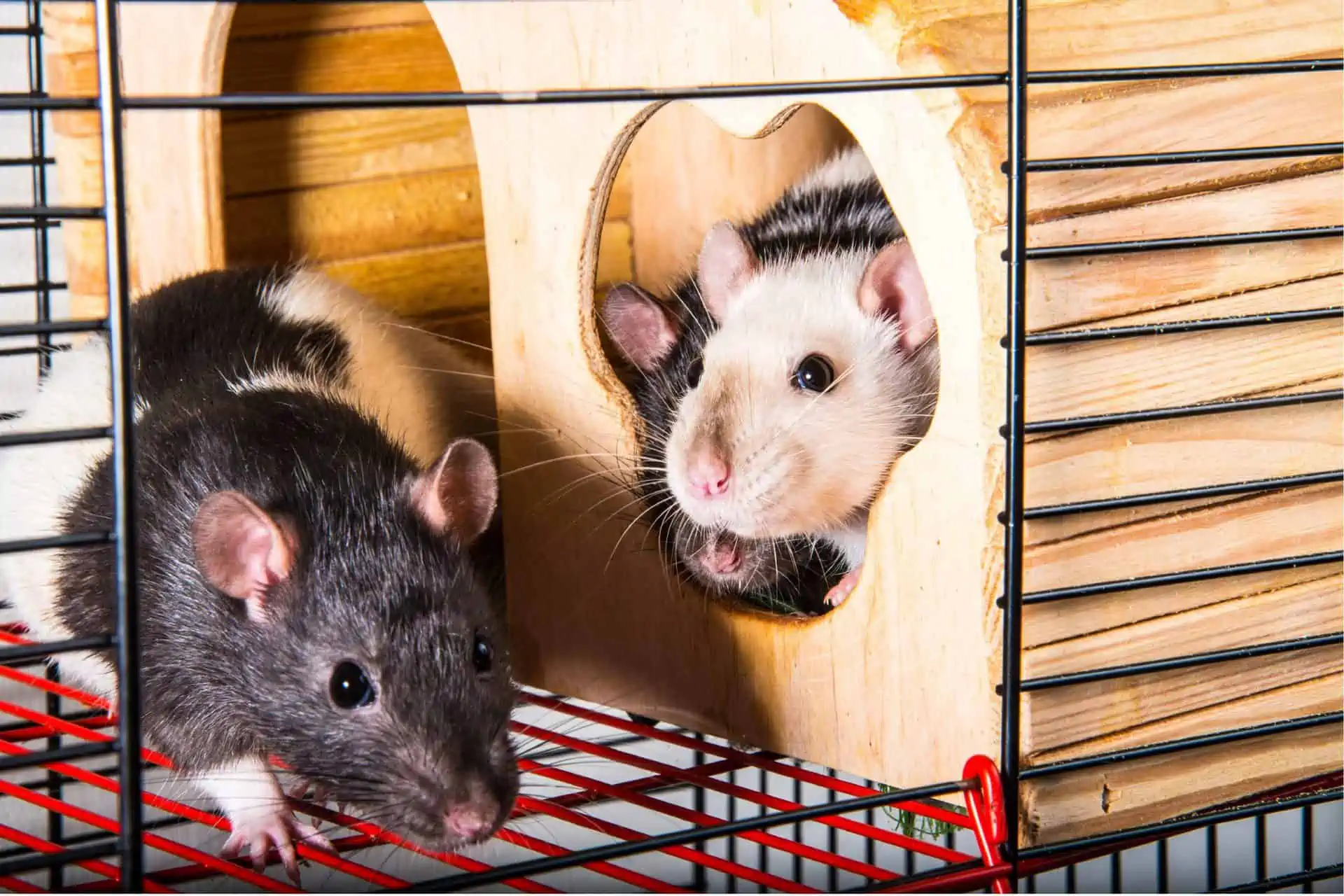Keeping your rats fit and healthy
Get into the habit of checking your rats over every day. It’s a good idea to weigh your rats too. Make this a regular thing and you’ll bond better with your pets – plus you’ll catch any problems early.
Take your rats to the vets for a check up once a year. Rats are prey animals so will hide signs of ill-health. This is why an annual vet visit is important to avoid any illnesses. If one of your rats shows a change in behaviour or in their eating and drinking habits, seek the advice of a vet as soon as possible.
Common health problems
Quick tip

Excel Rat Nuggets
Rat health check
You know your rats best. Rats love spending time with humans, which gives you lots of opportunities to keep an eye on how they’re acting and feeling. If you have any concerns, it’s always best to seek the advice of your vet.
Rats don’t need to be bathed, you will just need to clean their cage out. Bathing will cause them to become very stressed so never force your rats into water. However, some love playing in water so it’s a good idea to give them a shallow container of water to safely swim in if they want to!
Behaviour: You’ll know how your rats normally behave. Check that your rat’s behaviour is normal – they should be inquisitive, active and playful. Loss of appetite can be a sign that something is wrong
Breathing: Check if your rat is struggling to breathe or their breathing has become noisy. This could include wheezing, congestion, rattling, laboured breathing or gasping
Eyes: Your rat’s eyes should be bright, clear and free from discharge. A bulging eye could indicate a tumour or abscess. If there is bloody discharge coming from the eyes, this is Porphyria
Fur and skin: Your rat’s coat should be full and shiny. If your rat is scratching excessively or they have some bald patches, they could have parasites.
Mouth and teeth: Check that your rat’s teeth aren’t overgrown and aren’t misaligned or chipped. Look out for redness and swelling around their gums
Nose: Make sure your rat’s nose is clean and free from mucus
In addition to completing regular checks at home you should take your rats for a full veterinary check up at least once a year. If your rat’s behaviour or eating/drinking pattern changes you should seek the advice of a vet as soon as possible.
Neutering your rats
FEMALES:
Neutering will prevent any unwanted pregnancies. Generally, you should only neuter male rats. Not only will this prevent the pitter patter on tiny rat feet, but it can also help reduce fighting.
MALES:
If you do neuter your male rat, it’s a good idea to keep an eye on them for the first couple of weeks. Make sure they’re not touching the healing stitches and that they’re eating and toileting as normal.
Our Burgess Excel Range




Do you need more advice?
To help you find the right food for your pet have a look at our product range.
Alternatively you can call our free consumer care line on +44 1405 862241 between 9am and 5pm, Monday to Friday. Our dedicated team of pet experts will help you make the right choice.
If you should have any concerns about the health of your pet, always consult a vet.

